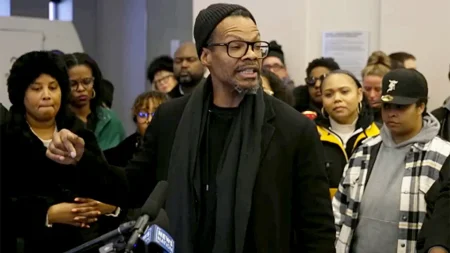Northeastern Governors Seek to Strengthen Public Health and Vaccine Approval Processes
In a move that mirrors efforts seen across the Western United States, governors throughout the Northeast region are taking decisive steps to reinforce public health infrastructure and streamline vaccine approval processes. These state leaders recognize that robust public health systems serve as the foundation for community wellbeing, particularly in an era where health challenges can emerge with little warning. Their initiatives aim to create more resilient healthcare frameworks that can better withstand future crises while ensuring residents have timely access to vital preventative measures like vaccines.
The governors’ approach acknowledges the lessons learned during recent public health emergencies, where coordination between state and federal authorities sometimes faltered. By working to establish clearer protocols for vaccine approval and distribution, these leaders hope to eliminate bureaucratic bottlenecks that can delay critical care. Their efforts reflect a growing recognition that states may need to assume more proactive roles in safeguarding public health, rather than relying exclusively on federal guidance. This balanced approach seeks to complement national strategies while addressing the unique needs and circumstances of Northeastern communities.
Public health experts have generally responded positively to these initiatives, noting that strengthened state-level systems can provide an additional layer of protection for residents. By investing in local health departments, expanding testing capabilities, and improving data collection and analysis, these governors aim to create early warning systems that can identify potential health threats before they become widespread crises. Additionally, clearer pathways for vaccine approval could mean faster responses to emerging diseases, potentially saving countless lives through more timely interventions and preventative measures.
These efforts come at a crucial moment when public trust in health institutions remains fragile. Northeastern governors recognize that rebuilding confidence requires not just improved systems but also transparent communication about how health decisions are made. Their initiatives frequently include provisions for clearer public messaging and community engagement, acknowledging that effective public health measures depend on widespread participation and understanding. By humanizing these processes and making them more accessible to everyday citizens, these leaders hope to foster a culture where health precautions are viewed as collective responsibilities rather than imposed restrictions.
The financial implications of these public health reinforcements present both challenges and opportunities. While strengthening infrastructure requires significant investment, governors are making the case that these expenditures represent prudent long-term planning rather than short-term fixes. Many are seeking innovative funding mechanisms, including public-private partnerships and federal grants, to supplement state budgets. These leaders argue that the economic costs of underprepared health systems far outweigh the investments needed to fortify them, pointing to the devastating financial impacts that health crises can inflict on state economies, businesses, and individual households.
As these initiatives move forward, they reflect a broader rethinking of how public health functions within our society. Northeastern governors, like their Western counterparts, are increasingly viewing robust health systems not as luxury items but as essential infrastructure on par with roads, bridges, and utilities. Their efforts to strengthen vaccine approval processes represent just one component of a more comprehensive vision where health preparedness becomes deeply integrated into governance at all levels. By taking these steps now, these leaders hope to create more resilient communities that can better weather future health challenges while protecting their most vulnerable populations and preserving economic vitality.







